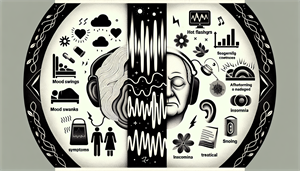
Dehydration And Snoring
Have you ever woken up from a restless night of sleep, throat parched, feeling sluggish, and worse, kept awake by your own loud snoring? These are common experiences many of us share, but few realize the silent culprit behind them: dehydration and snoring. How can a lack of water lead to such disruptive and uncomfortable issues? Let’s dive deeper into the hidden relationship between hydration, snoring, and sleep quality.
Key Takeaways
-
Dehydration leads to snoring by causing the tissues in the mouth and nasal passages to become sticky and vibrate, and addressing it can improve sleep and reduce snoring symptoms.
-
Staying hydrated throughout the day and integrating lifestyle changes such as limiting alcohol and caffeine intake, eating water-rich foods, and practicing good sleep hygiene can help minimize snoring and enhance sleep quality.
-
Beyond hydration, other snoring remedies include adjusting sleep position, using nasal strips or dilators, anti-snoring mouthpieces, and considering medical interventions for severe cases.
The Connection Between Dehydration and Snoring
Hydration significantly influences the quality of a good night’s sleep. Not just in keeping us refreshed, but also in controlling snoring, a common disruptor of sound slumber. But how exactly does dehydration lead to snoring? Every time we inhale, air flows over the mouth and nasal passages.
When these tissues are dry, they can become sticky, causing them to vibrate and create the sound we know as snoring. But it’s not just about the noise.
Snoring can also worsen dehydration and intensify symptoms like headaches, dry mouth, and fatigue, creating a vicious cycle that further disturbs sleep. Interestingly, this cycle can also work in reverse. Insufficient sleep can elevate the body’s dehydration levels and exacerbate snoring. This is a perfect illustration of the intricate relationship between dehydration and snoring. Understanding this correlation allows us to devise strategies that promote better sleep and overall well-being.
How dehydration leads to snoring
Dehydration causes our bodies to produce thicker mucus, resulting in nasal congestion. This congestion makes breathing more difficult and increases our tendency to snore. This is why staying hydrated is crucial for anyone seeking to minimize snoring and improve sleep quality. Treating snoring effectively can be as simple as ensuring we stay hydrated throughout the day. By reducing the viscosity of our mucus, we can keep our airways clear, reducing snoring and promoting a better night’s sleep.
The role of sleep apnea in dehydration and snoring
Sleep apnea is a sleep disorder characterized by disrupted breathing patterns. The increased breathing effort required can lead to dehydration, further exacerbating the issue of snoring. The physiological changes caused by sleep apnea, such as upper airway dryness and increased water loss through breathing, can lead to frequent nighttime trips to the bathroom, disrupting sleep and increasing the likelihood of dehydration. Addressing dehydration in sleep apnea patients can help improve sleep quality and reduce snoring.
Hydration Hacks for Quieter Nights
It’s clear that maintaining hydration is key to reducing snoring and enhancing sleep quality. But how can we ensure we stay hydrated, particularly during the night when we’re prone to losing fluids through respiration and urination? Here are three simple hydration hacks to help you minimize snoring and enjoy a good night’s sleep: drinking water throughout the day, limiting alcohol and caffeine intake, and eating water-rich foods.


